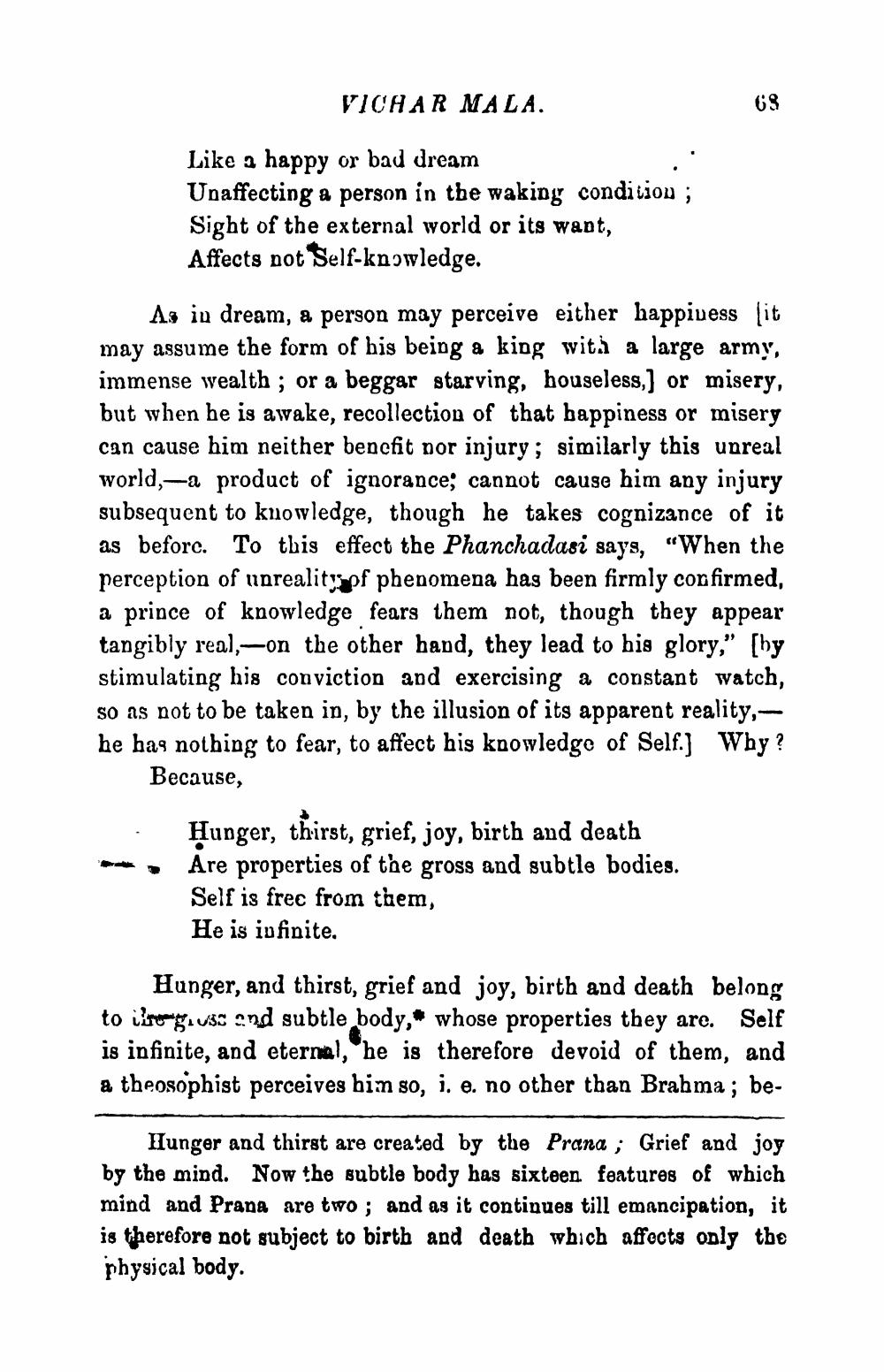________________
VICHAR MALA.
Like a happy or bad dream
Unaffecting a person in the waking condition Sight of the external world or its want, Affects not Self-knowledge.
68
-
As in dream, a person may perceive either happiness [it may assume the form of his being a king with a large army, immense wealth; or a beggar starving, houseless,] or misery, but when he is awake, recollection of that happiness or misery can cause him neither benefit nor injury; similarly this unreal world, a product of ignorance; cannot cause him any injury subsequent to knowledge, though he takes cognizance of it as before. To this effect the Phanchadasi says, "When the perception of unreality of phenomena has been firmly confirmed, a prince of knowledge fears them not, though they appear tangibly real, on the other hand, they lead to his glory," [by stimulating his conviction and exercising a constant watch, so as not to be taken in, by the illusion of its apparent reality,he has nothing to fear, to affect his knowledge of Self.] Why? Because,
Hunger, thirst, grief, joy, birth and death Are properties of the gross and subtle bodies. Self is free from them, He is infinite.
Hunger, and thirst, grief and joy, birth and death belong to reguss and subtle body, whose properties they are. * Self is infinite, and eternal, he is therefore devoid of them, and a theosophist perceives him so, i. e. no other than Brahma; be
Hunger and thirst are created by the Prana; Grief and joy by the mind. Now the subtle body has sixteen features of which mind and Prana are two; and as it continues till emancipation, it is therefore not subject to birth and death which affects only the physical body.




